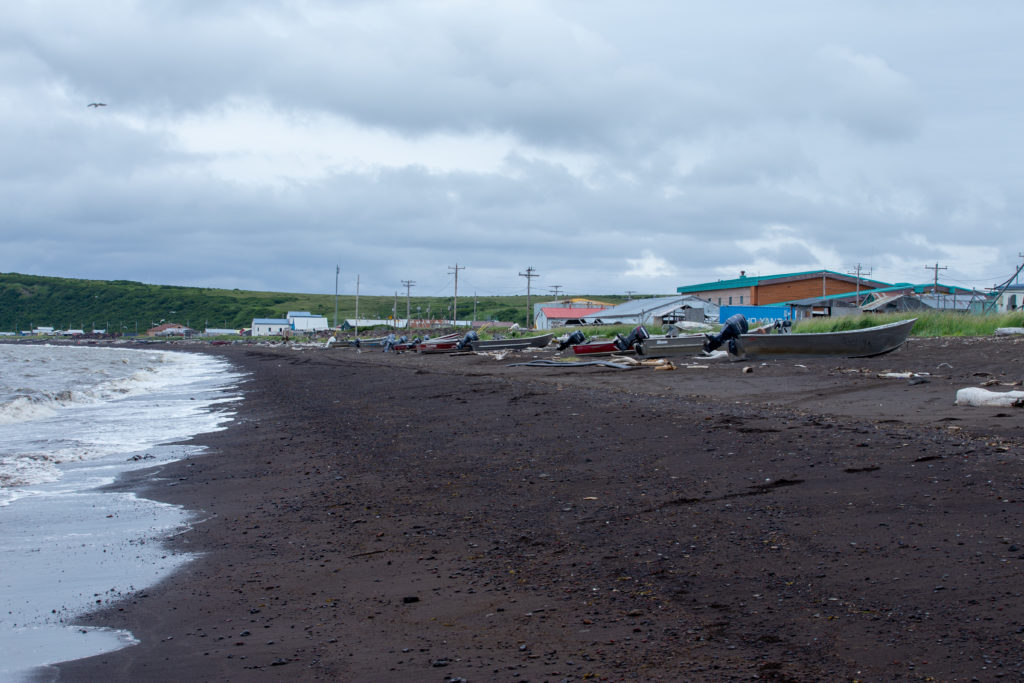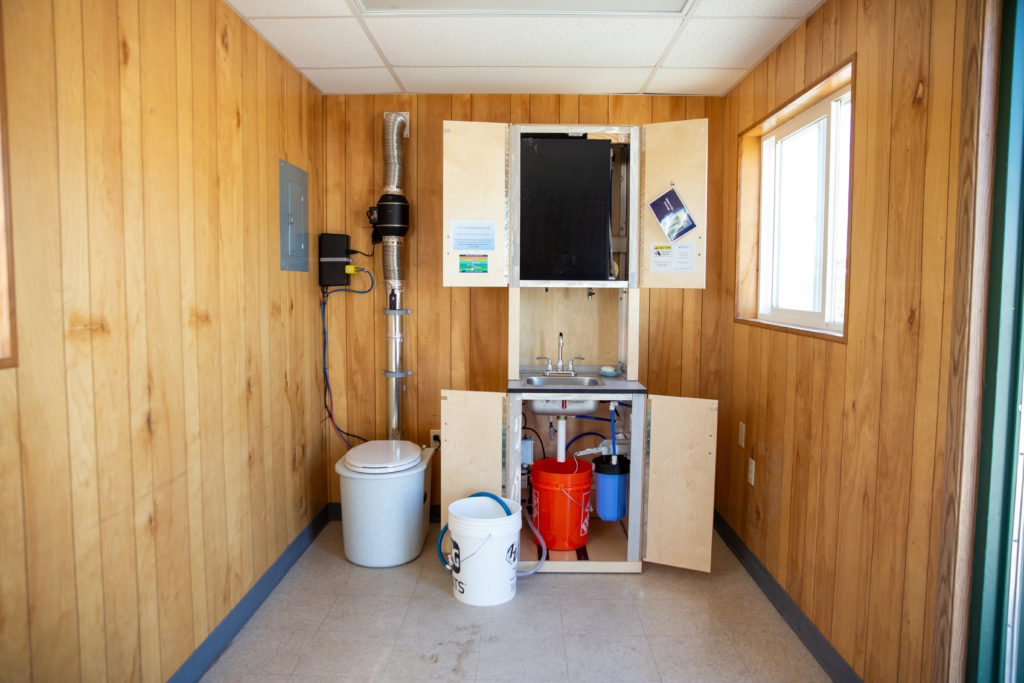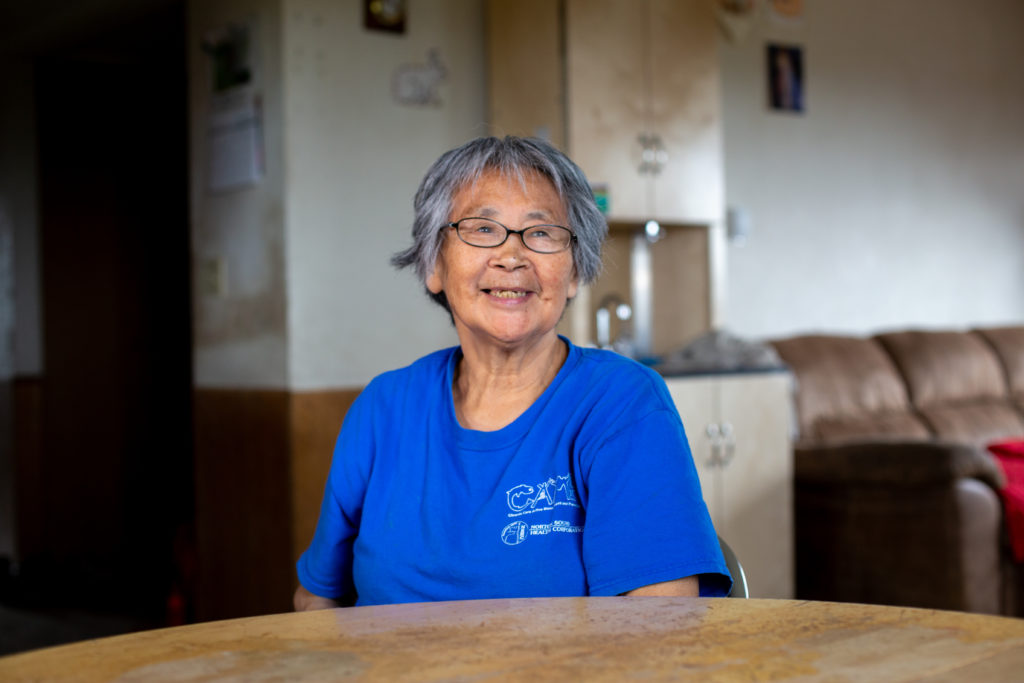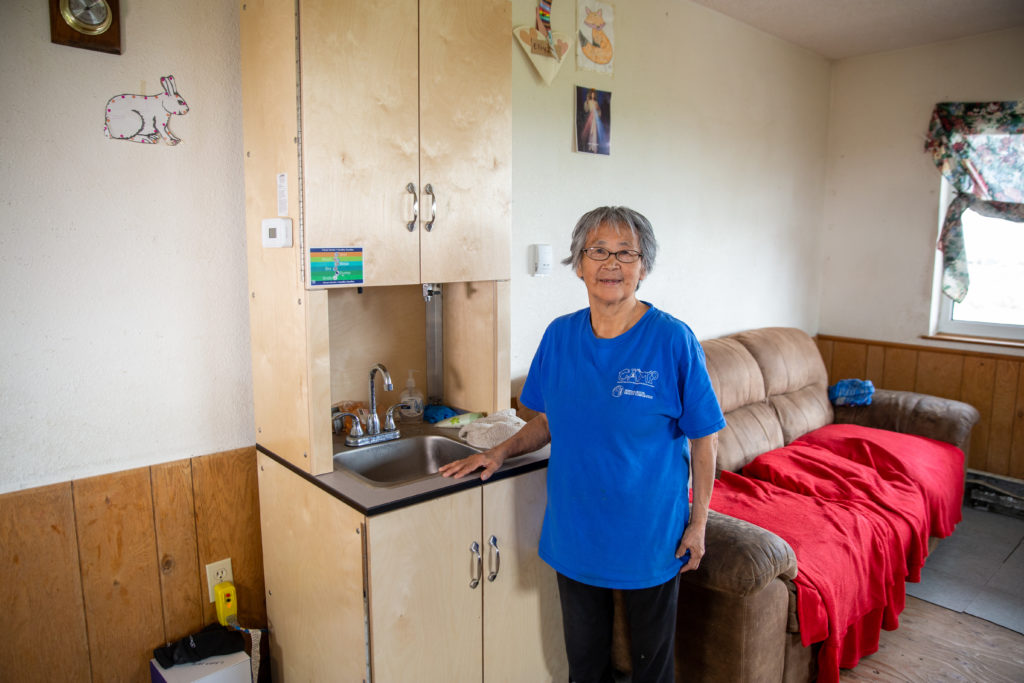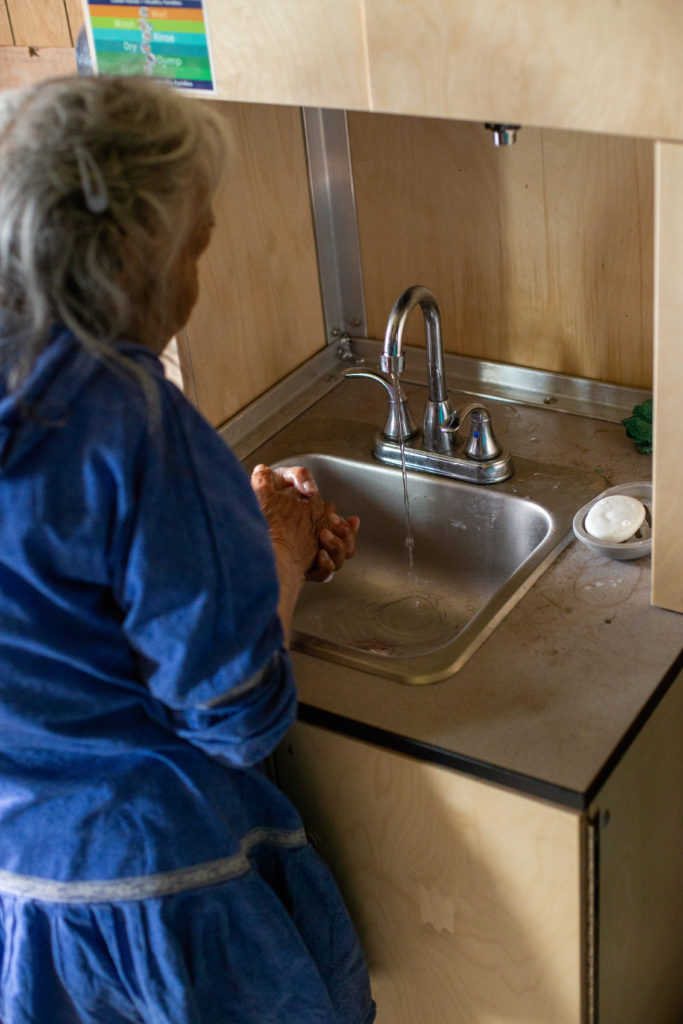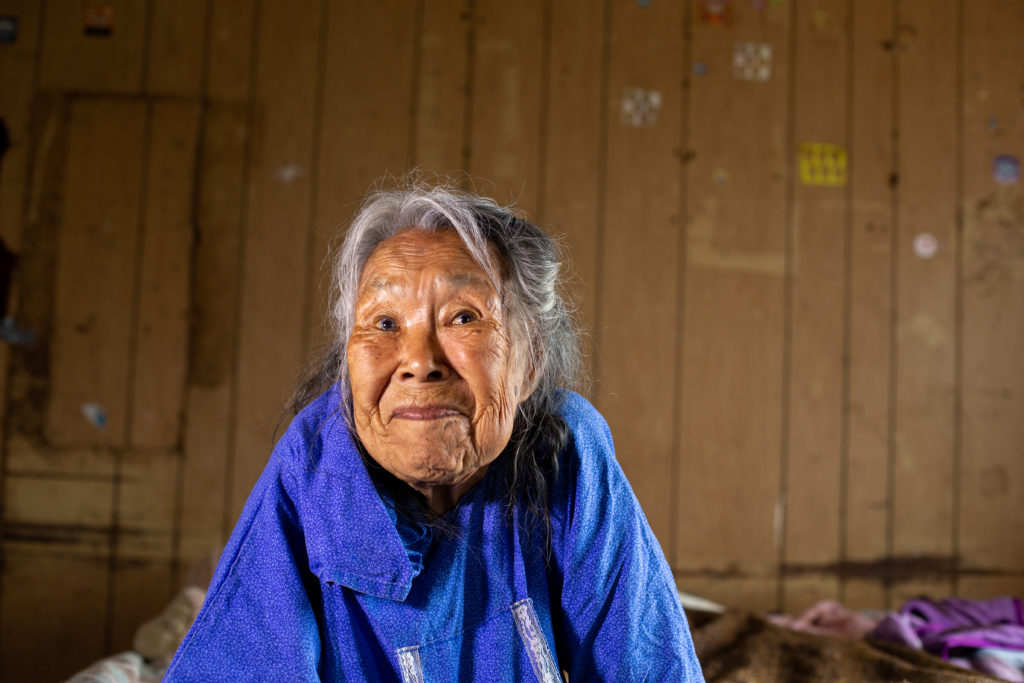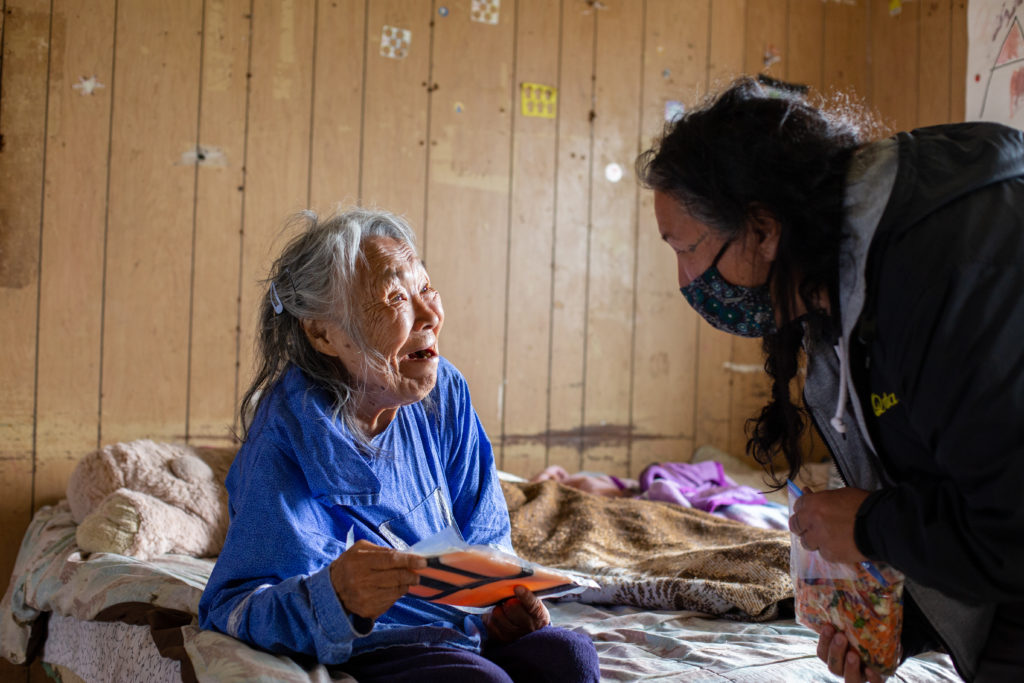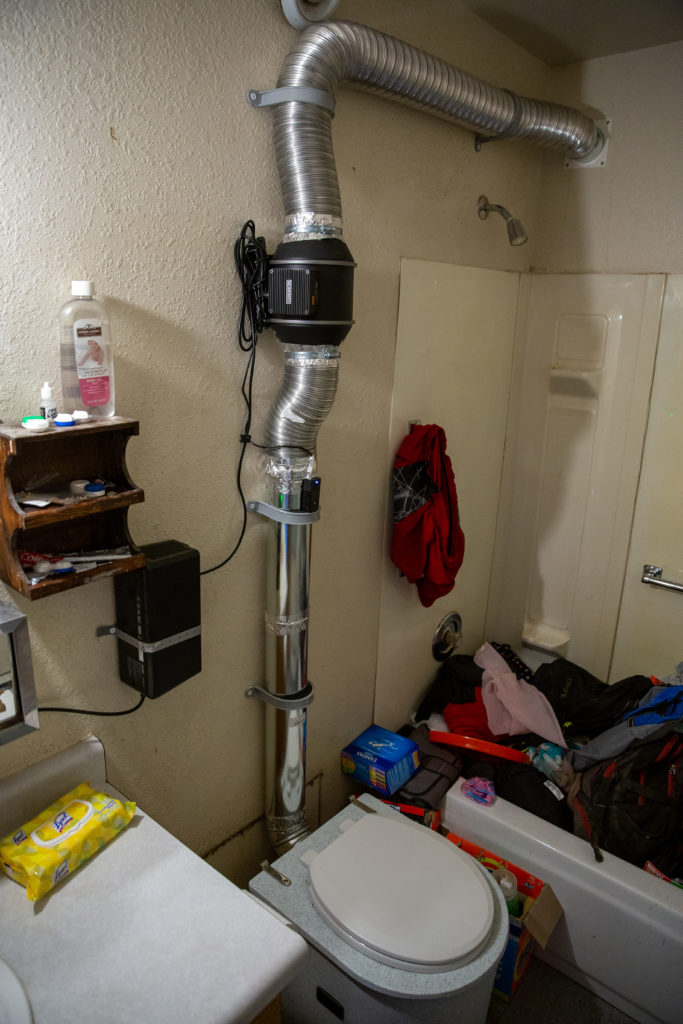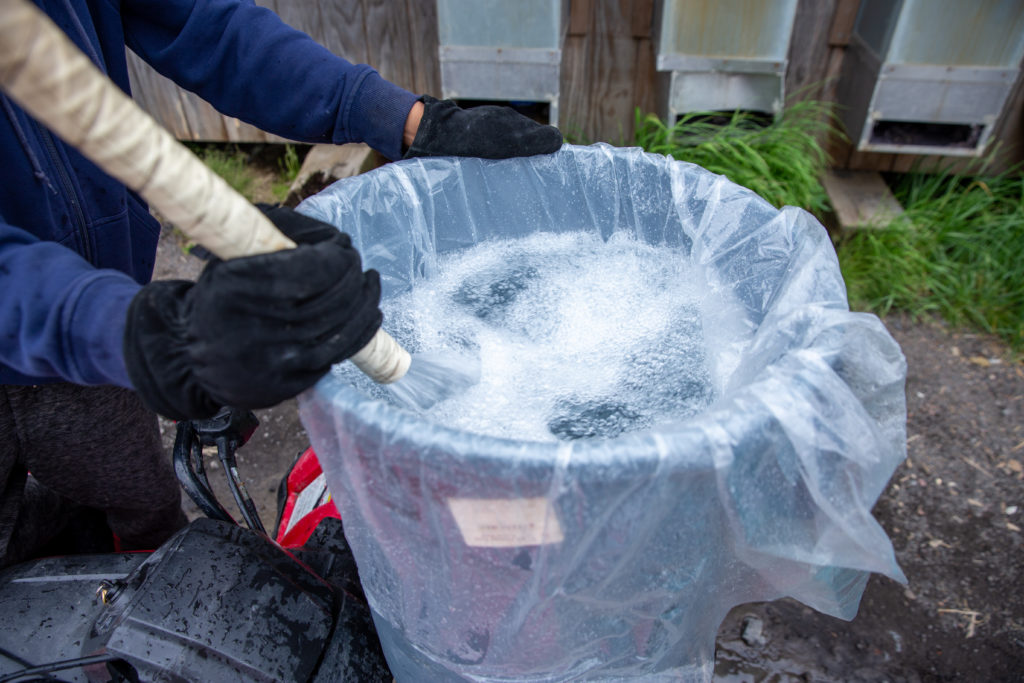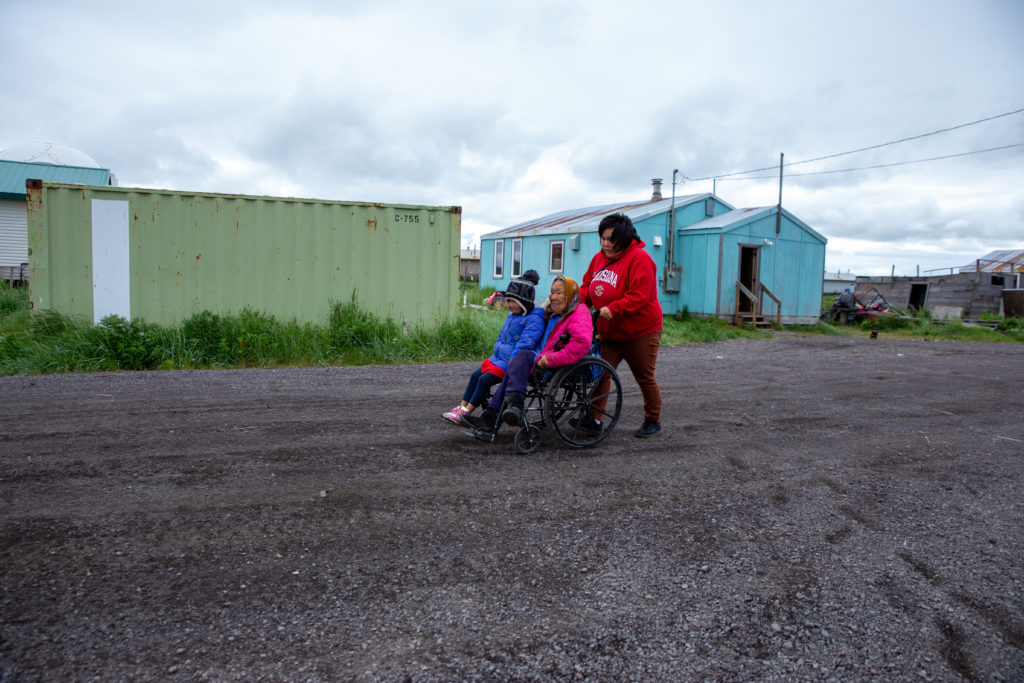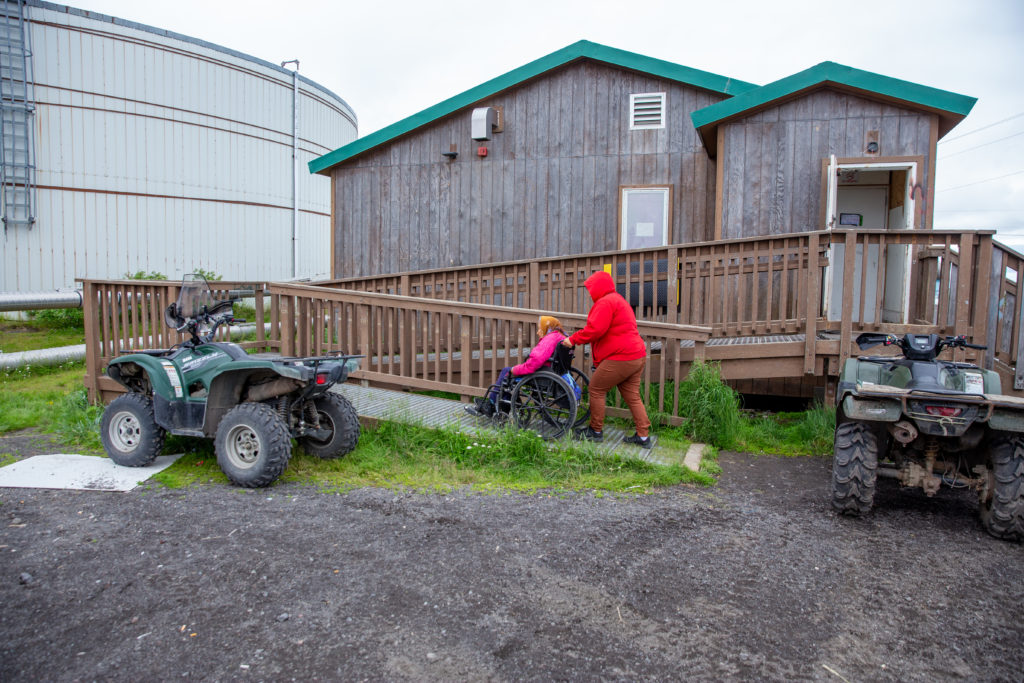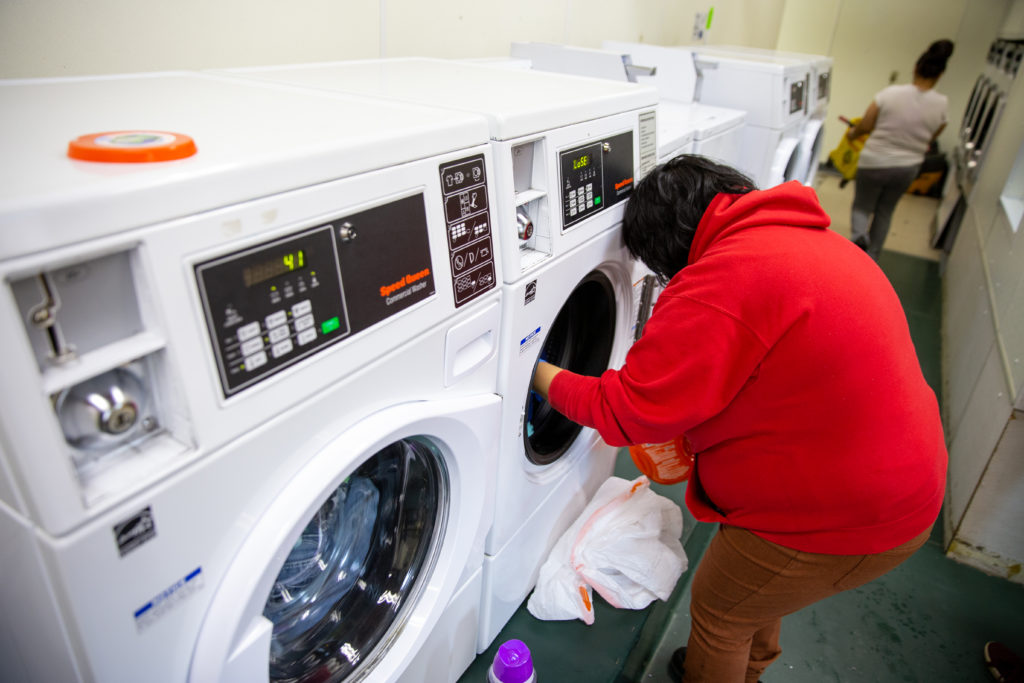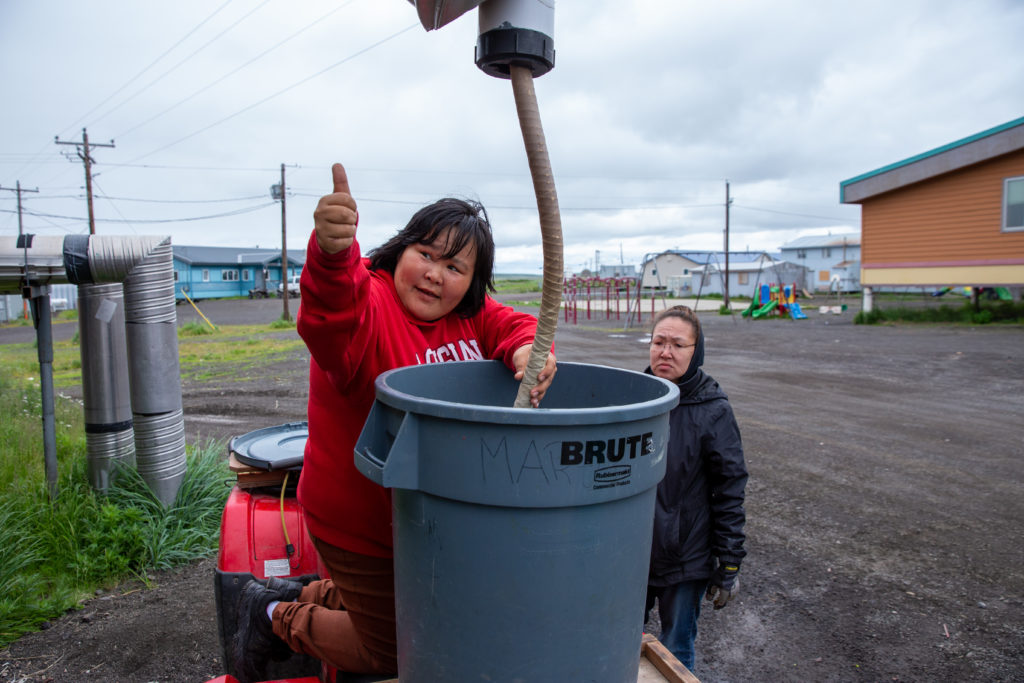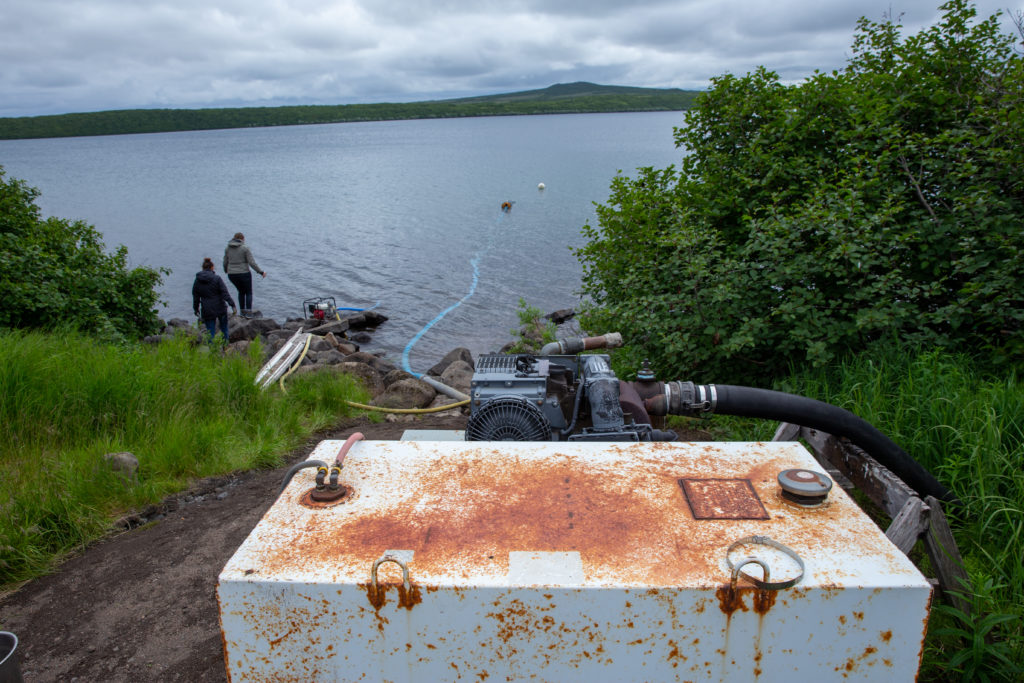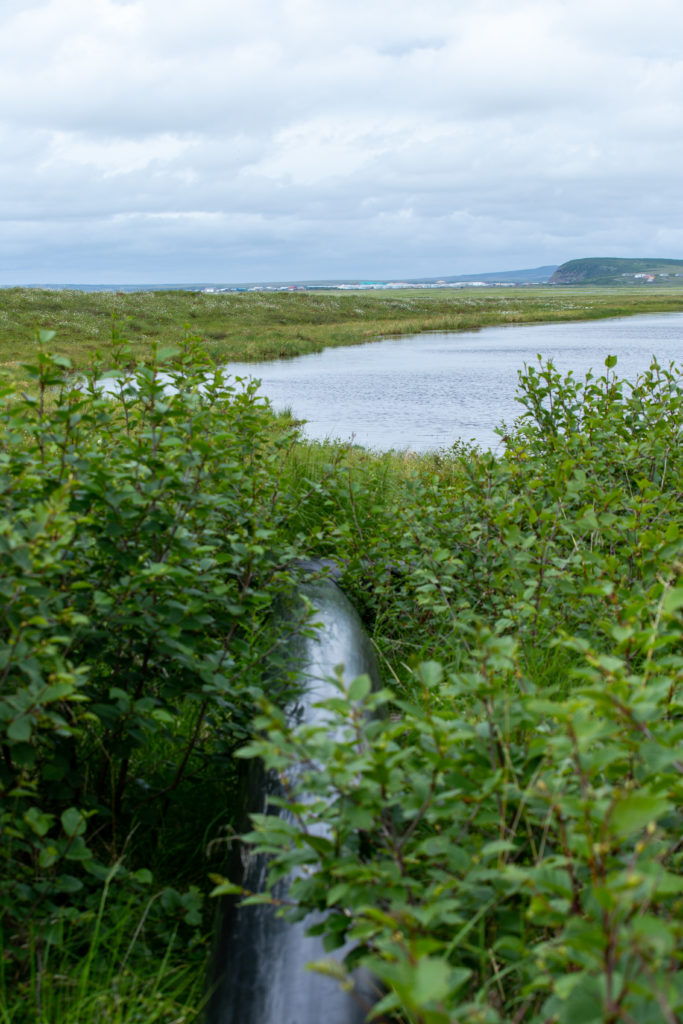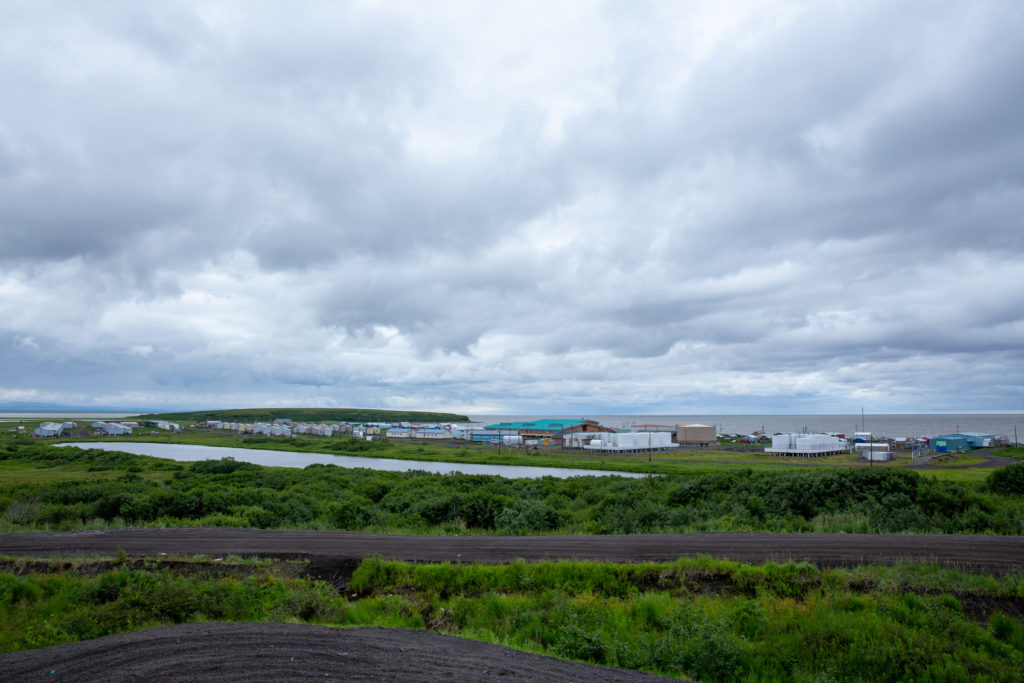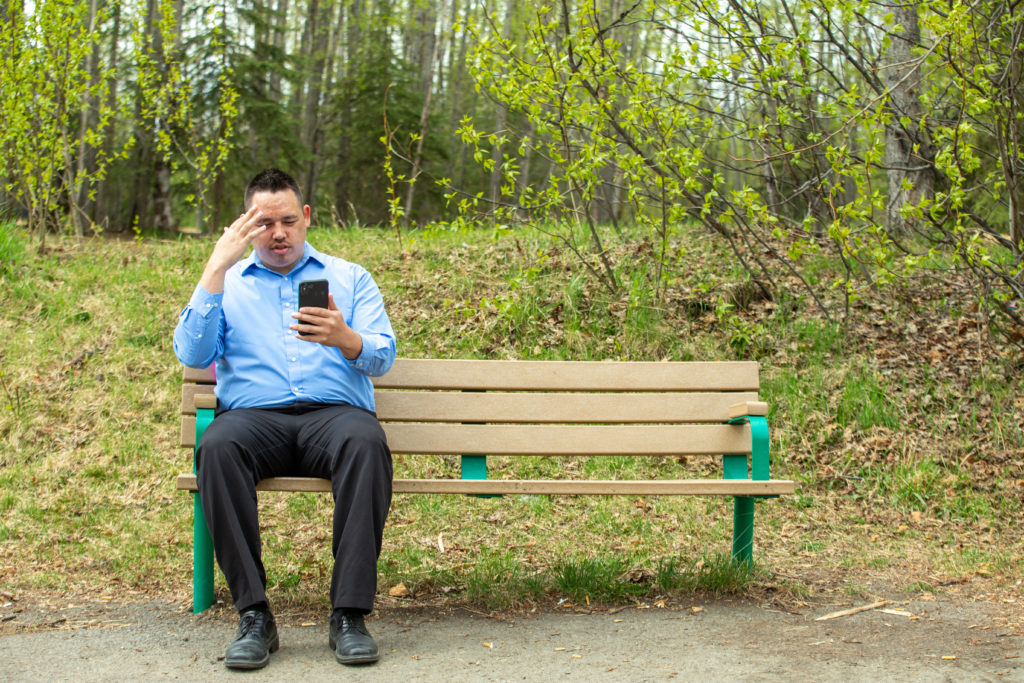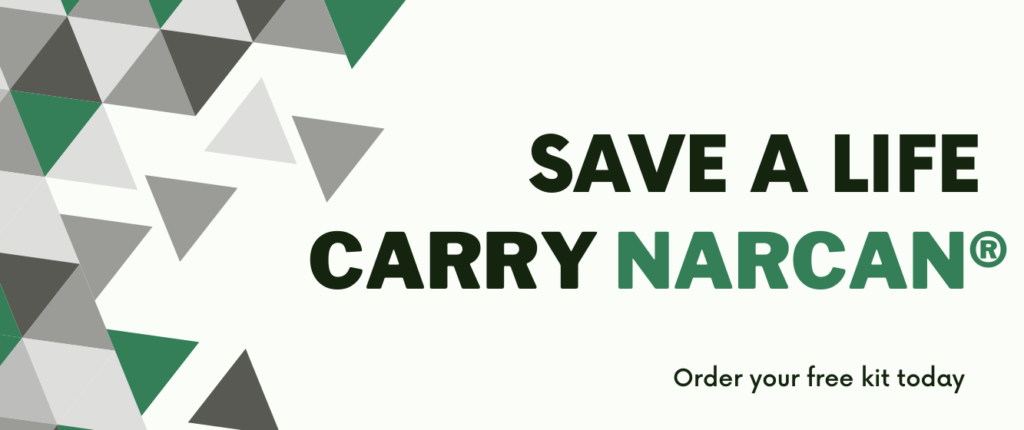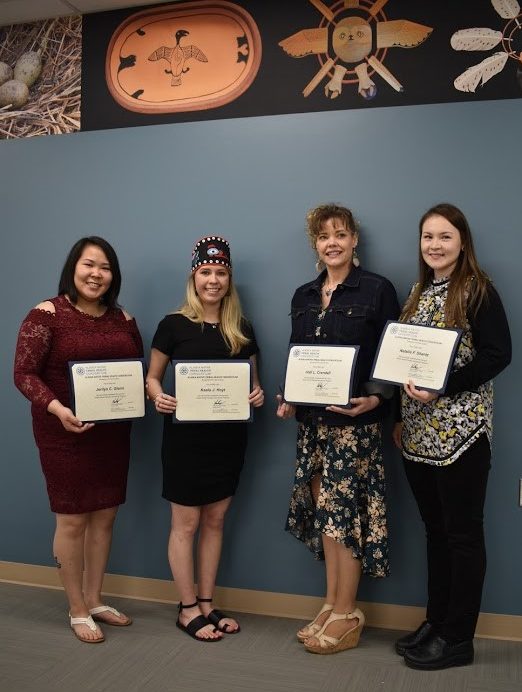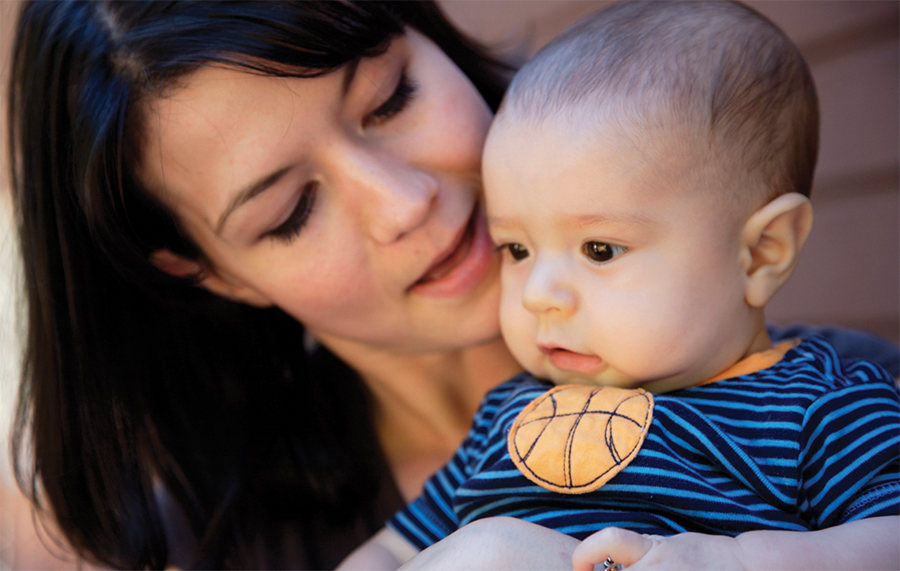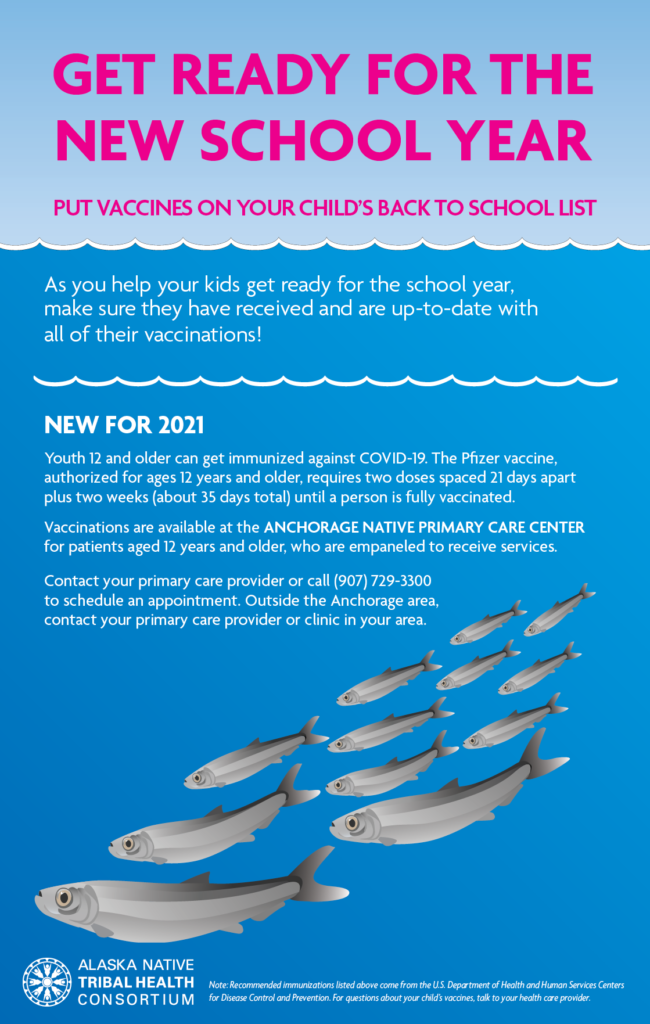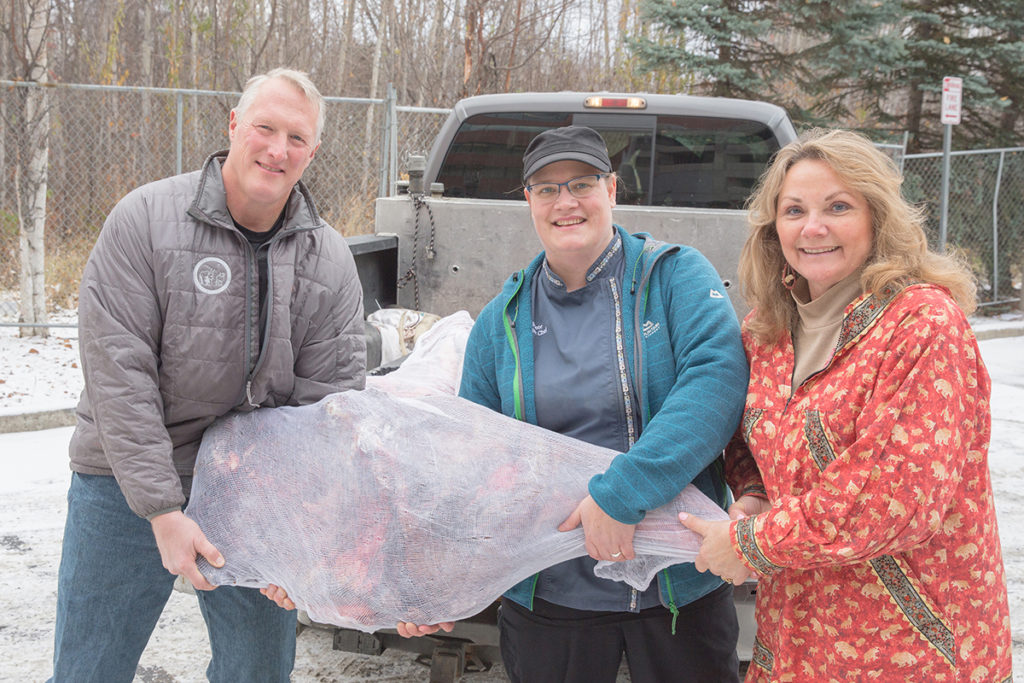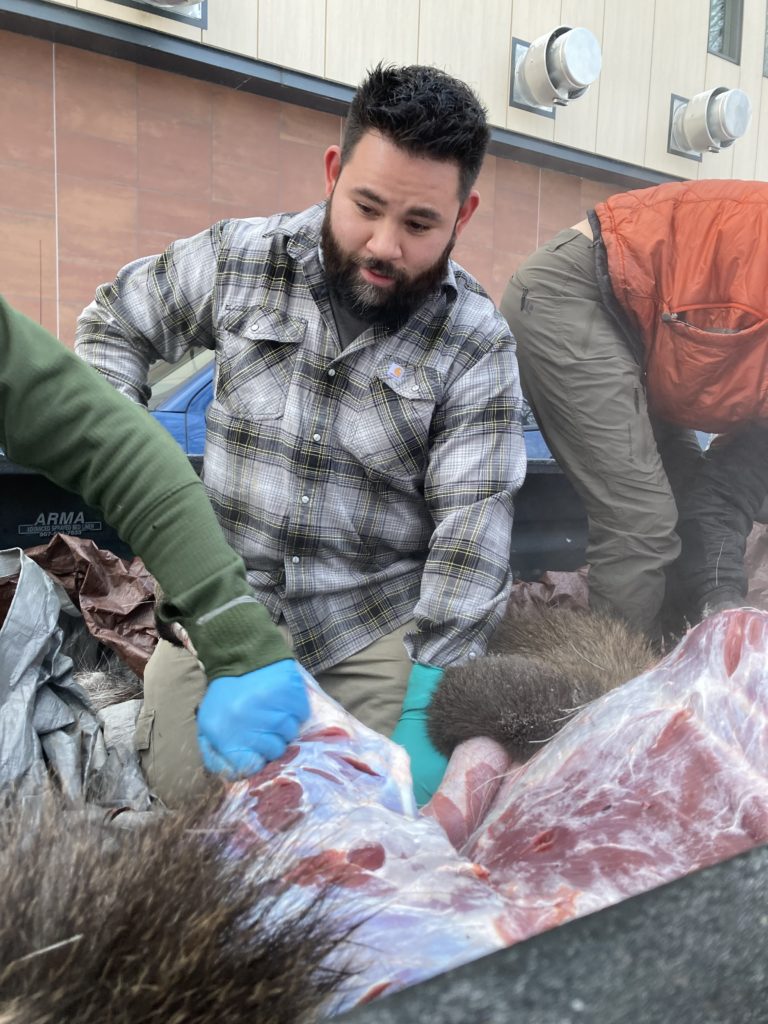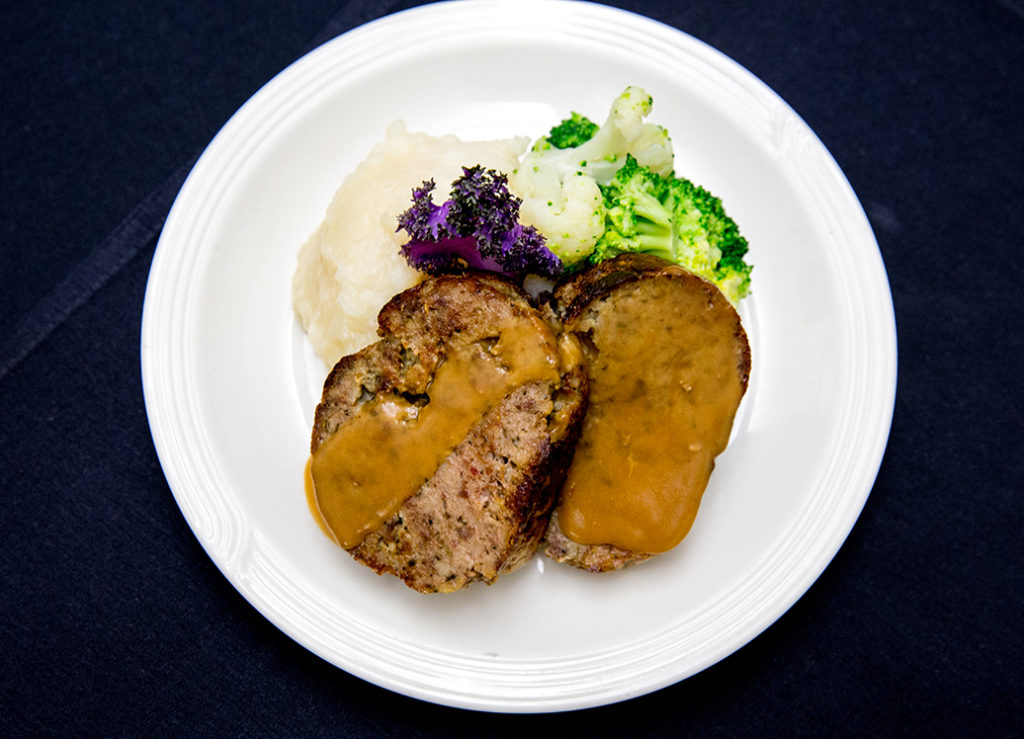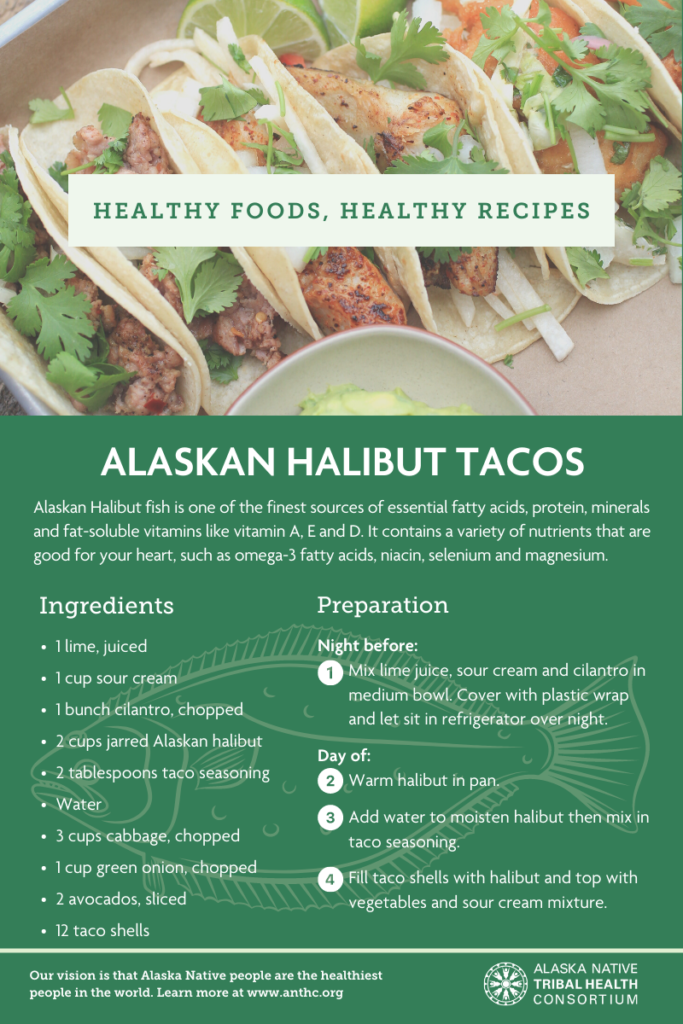Mukluk Telegraph Summer 2021
Click to jump to a story:
ANTHC delivers and installs Mini Portable Alternative Sanitation Systems in Stebbins, Alaska
A group of ANTHC staff recently flew to Stebbins, Alaska, following the installation project of 10 Mini Portable Alternative Sanitation Systems (PASS) in homes throughout the community. Stebbins, a community of about 575 people located on St. Michael Island in the Norton Sound, is about a 45-minute plane ride south of Nome.
The Mini PASS is composed of two components: a handwashing cabinet and ventilated honey-bucket. The handwashing cabinet allows for an in-home faucet for running water and is designed for areas where families typically use washbasins. Water is pumped into the unit from a barrel or bucket, filtered and stored in the overhead tank. When the faucet is turned on, water runs down to the sink with gravity, and users can wash their hands in clean, flowing water. Wastewater is collected underneath in a bucket, then disposed of outside the home.
The vented honey-bucket comes with a ventilation system that includes a fan to pull odors out of the home. This eliminates the need for harsh odor-masking chemicals and helps to freshen the air throughout the house, two significant improvements in maintaining a healthy lifestyle. Developed by a team of Alaskans to help answer wastewater challenges in unserved communities, the toilet has been tested throughout the state and assists in bringing indoor sanitation and fresh air to homes that do not have running water. The Stebbins Mini PASS Project was funded by a private donor through the CDC Foundation.
Click on the images below to expand and read captions about each image.
ANTHC Behavioral Health Wellness Clinic now open!
Increasing access to care for our people remains a top priority for the Alaska Native Tribal Health Consortium (ANTHC). Behavioral health services can be difficult to access throughout Alaska and ANTHC’s new clinic aims to make it easy to connect to compassionate care.
The ANTHC Behavioral Health Wellness Clinic (BHWC) is now open. The BHWC serves Alaska Native and Native American individuals and families living in Alaska. All services are provided exclusively through telehealth, so individuals throughout Alaska will have access to care.
“We are excited to begin offering this new service,” said Rebecca Robinson, Ph.D., BHWC Clinic Director. “Our goal is to promote Alaska Native wellness by offering immediate access to culturally attuned and evidence-based behavioral health care. With this telehealth clinic, we are specifically focused on serving people living in rural and remote areas of the state where access to behavioral health care is limited.”
The BHWC provides individual and group counseling, mental health and substance use assessments, health behavior coaching, and referral support. Behavioral health providers and case managers are part of the team delivering services. The clinic’s top priority is to increase access to behavioral health care in partnership with our Tribal health partners across the state.
The BHWC directly supports communities needing additional behavioral health provider resources, extends resources needed by individuals and families, as well as provides support and encouragement for people waiting to access other treatment services. In many cases, people will be able to make same-day telehealth appointments.
For more information on the Consortium’s Behavioral Health Wellness Clinic or to complete an intake to access services, please visit https://www.anthc.org/bhwc or call 907-729-BHWC (2492) or 1-833-642-BHWC (2492).
Tell Your Heart Story – September is Suicide Prevention Month
Every story matters and the Alaska Careline is here to listen. Every September, the Alaska Native Tribal Health Consortium joins national efforts to bring awareness to suicide prevention. ANTHC also works with communities to reduce shame and stigma through our message campaign, Tell Your Heart Story.
If you are having suicidal thoughts or in need of support, please contact the Careline at 1-877-266-4357 (HELP) for support and assistance from a trained counselor. If you or a loved one are in immediate danger, call 911 or your local Village Safety Police Officer. For more mental health resources near you, download the Careline app https://carelinealaska.com/get-the-app-2/
Order a Narcan kit to save lives from opioid overdoses
Narcan (Naloxone) kits can quickly reverse the effects of an opioid overdose. Naloxone, easily delivered in a nasal spray, knocks opioids and heroin off the brain’s opioid receptors, reversing the effects of the opioid and allowing the person to breathe again. This means if someone overdoses on pain medicine or opioids, it can save their life. Even if you suspect a person has overdosed or you have no other medical training, Narcan kits can be a safe way to assist someone immediately.
You can order this first aid tool by visiting iknowmine.org and completing the online Opioid Overdose Response Training. Once your training is complete, you will be sent a Narcan kit that you can keep in your home or take it with you wherever you travel. All members of our community should be trained and provided with a Narcan kit in the event a loved one or someone around them experiences an opioid overdose. These free kits are only available for Alaska-based addresses. For more information, please visit https://www.iknowmine.org/product/narcan-kit/.
Alaska Dental Therapy Education Program Graduation
Started in 2004, the Alaska Dental Therapy Education Program (ADTEP) was created in response to the need for routine oral health care throughout the Alaska Tribal Health System. By providing routine access to dental care from a Dental Health Aide Therapist (DHAT), many rural Alaska Native people are now able to receive mid-level dental care and prevention services close to home.
In June 2021, four more students enrolled in ADTEP graduated after successful completion of the program. The graduates completed the two-year program as well as a preceptorship with a supervising dentist. This year, the graduating DHAT students will serve communities throughout rural Alaska, including with the Yukon-Kuskokwim Health Consortium and SouthEast Alaska Regional Health Corporation. The photo was provided by Yukon-Kuskokwim Health Corporation Communications and includes the June 2021 ADTEP DHAT graduates Jodi Crandall, Jerilyn Glenn, Kaela Hoyt and Natalia Shantz. Congratulations, graduates!
For more information on ADTEP, visit: https://www.anthc.org/alaska-dental-therapy-education-programs/
A new path to health care for American Indian and Alaska Native people
Many American Indian and Alaska Native people qualify for health insurance through Medicaid, Denali KidCare and now the Tribally-Sponsored Health Insurance Program (T-SHIP). You may also be wondering if you should sign up for the Marketplace. The answer is yes, because with health insurance you can help expand access to care and treatments at our Tribal health care facilities.
In response to the COVID-19 pandemic, T-SHIP expanded eligibility and now covers more people. IHS-eligible individuals who don’t have insurance coverage can find out if they can get health insurance coverage, too.
Here are four things to know:
- T-SHIP coverage will not cost you anything. ANTHC pays the premium and Alaska Native and American Indian people do not have to pay any co-payments or deductibles when they are seen or referred by Tribal health facilities.
- Health insurance can help make more services available for you and all Alaska Native and American Indian people. Health insurance can also help you receive medical care when you are traveling or away from Tribal health facilities. You will always first and foremost be a beneficiary of Indian Health Services, Tribal hospitals and health clinics throughout Alaska and the United States.
- Your coverage will start the first of the month after you enroll in a plan. For example, if you enroll anytime in March, your coverage will start on April 1.
- Getting help to enroll is easy. Talk to Alternate Resources or Family Health Resources at (907) 729-4470 for more information. You may also visit https://www.anthc.org/tship.
Put vaccines on your child’s back to school list
Donating hunted and gathered foods to ANMC
For years, Alaska Native leaders negotiated with the U.S. Department of Agriculture for permission to serve traditional foods to those who benefit from their healing and comforting effects. Healthy eating is one of the building blocks for a healthy life. ANTHC’s Tribal leadership helped place traditional foods in a prominent place in our health care and services. ANTHC has long been at the forefront of advocating for the positive aspects of harvesting and eating traditional foods – and permission to serve them to our patients at the Alaska Native Medical Center.
In 2013, a bill from former Alaska U.S. Sen. Mark Begich named the “The Traditional Foods Nourishment Act of 2013” passed, making it easier to serve Alaska Native foods in facilities like hospitals, schools, child care and Elder care facilities.
The ANMC Cafeteria serves a variety of traditional foods to our people who are inpatient at the hospital. Inpatients can order a variety of dishes with reindeer or salmon, beach asparagus, fiddlehead ferns, herring eggs, fish pies, a variety of Alaskan berries and even Eskimo ice cream. Over 60% of ANMC’s inpatient menu includes traditional ingredients.
Traditional Alaska Native foods are what our patients consider comfort food – the foods that heal them. ANMC Executive Chef Amy Foote sees the power of traditional foods every day.
“Providing a taste of home is critical in the healing process,” said Amy Foote, Senior Area Executive Chef at ANMC. “We see patients relax and share stories of a time when they were well, out harvesting and spending time with loved ones. Traditional foods heal our patients – for them, they are comfort, they are healing, they are home.”
While there are a number of traditional foods that our inpatients can order at ANMC, there are still many items that we are not permitted to purchase and serve to them unless they are donated. In recent years, ANMC received many donations of traditional foods from local hunters and gatherers to serve to our inpatients. Some of the items donated include moose meat, herring eggs, sheefish, hooligan, fiddlehead ferns, berries, seal meat and deer meat.
ANMC can accept most wild game meat and bones (caribou, moose, deer, sheep, goat and beaver) following these guidelines: must be whole, quartered, or roasts; meat cannot be ground; most fish and seafood: must be gutted and gilled, with or without heads; seal meat and fat; and plants and berries: whole, fresh or frozen. Items may not be vacuum sealed.
If you are interested in donating any of these items or have questions about traditional foods being served at ANMC, please call (907) 729-2682 or email NativeFoods4Life@anthc.org.
Recipe: Alaskan Halibut Tacos
Healthy eating and food security are important building blocks of health. The Consortium helps promote the knowledge and use of traditional foods and traditional ways that support Alaska Native health. Check out this recipe from our healthy cookbook titled Foods We Alaskans Enjoy:


